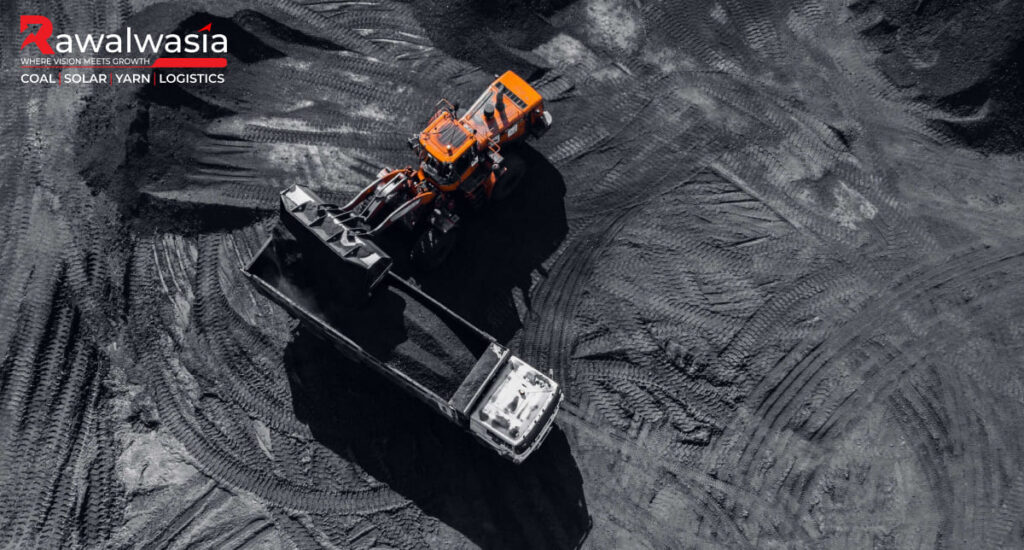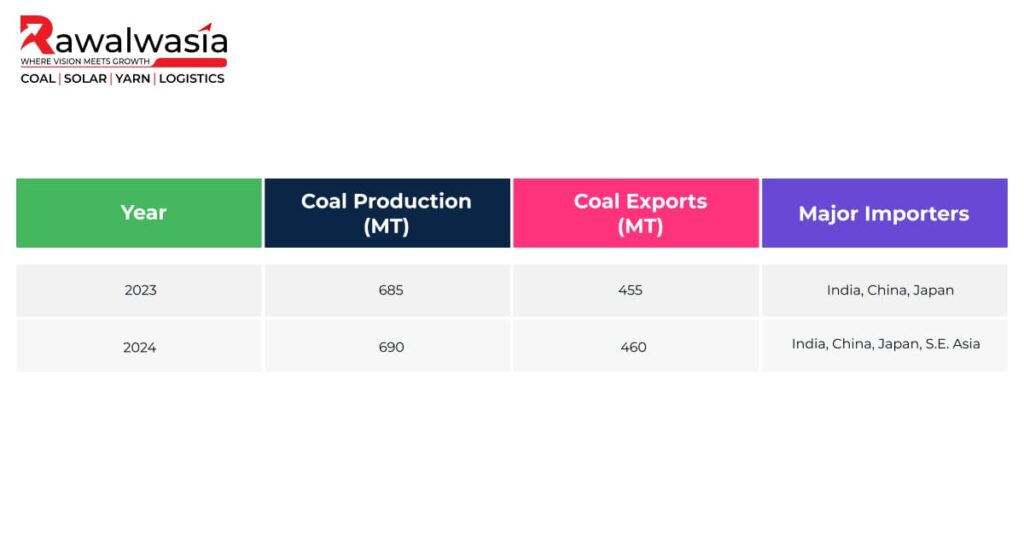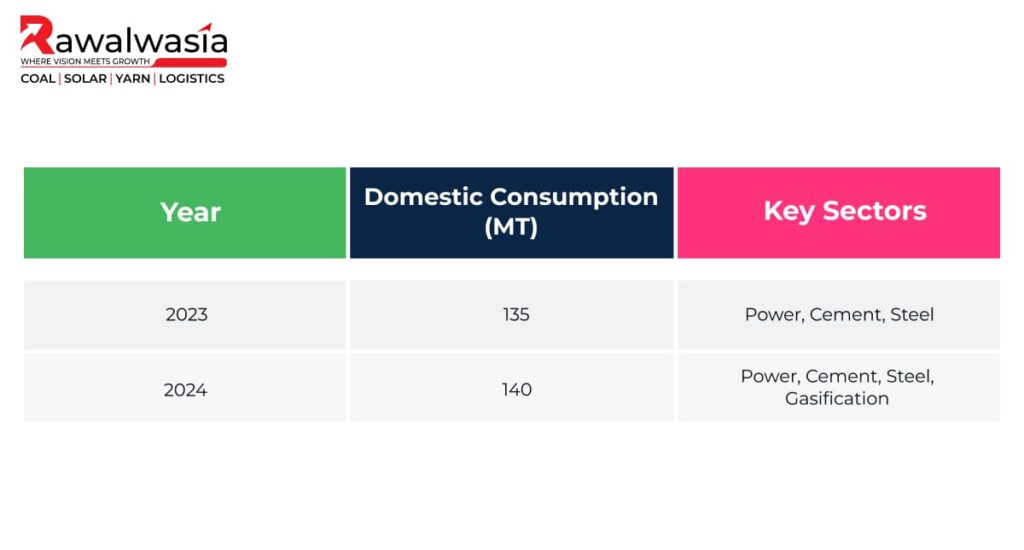Introduction

Indonesian coal remains a cornerstone of global energy markets, particularly in Asia, where it is a key resource for power generation and industrial applications. As one of the world’s largest coal producers and exporters, Indonesia is critical in meeting the growing energy demands of developing and developed economies. In 2024, Indonesian coal remains a vital resource, with steady production, export growth, and a diversified customer base. This article explores Indonesian coal’s latest information and trends, focusing on its importance in the global energy market, especially in 2024.
Indonesian Coal: Production and Export in 2024
As of 2024, Indonesia is one of the top coal producers globally, alongside countries like Australia, China, and India. According to the latest data, the Ministry of Energy and Mineral Resources of Indonesia projects coal production in 2024 at 690 million tonnes (MT). This represents a slight increase from 2023, when production reached 685 MT, owing to high demand from both domestic and international markets.
Indonesia’s coal exports continue to dominate the energy export landscape, exporting around 460 MT of coal in 2024. The largest importers of Indonesian coal are India, China, and Japan, with Southeast Asian nations increasingly relying on it for their power generation needs.

Indonesian Coal Today: Domestic Consumption and Usage
In 2024, Indonesian coal continues to support the export market and the growing domestic energy needs. The Indonesia Coal Benchmark Price (HBA) has remained stable due to solid demand from domestic power plants and industrial sectors. Indonesia’s state-owned utility PLN is one of the largest coal consumers for power generation, alongside the cement and steel industries.
Indonesia’s domestic coal consumption for 2024 is projected to be 140 MT, up from 135 MT in 2023. The increase in consumption is attributed to the expansion of coal-fired power plants and the growing industrial base. Additionally, Indonesia has been investing in developing coal gasification projects, which convert coal into syngas, further diversifying its use.

Indonesian Coal Today: Pricing and Market Trends
The price of Indonesian coal in 2024 has remained competitive in the global market, making it a preferred choice for many countries, especially in Asia. In early 2024, authorities set the Indonesia Coal Benchmark Price (HBA) at $125 per tonne, slightly decreasing from the previous year’s average of $130 per tonne due to stabilised supply chains and increased domestic production.
The stable pricing environment has allowed Indonesian coal to maintain its edge over competitors like Australia and Russia. As part of its market strategy, Indonesia has focused on diversifying its export destinations with new agreements with Southeast Asia and African countries.
Indonesian Coal: Role in Global Power Generation
In 2024, Indonesian coal continues to be a leading fuel for power generation, particularly in Asian economies heavily reliant on coal-fired power plants. India and China, the two largest importers of Indonesian coal, have increased their import volumes to meet their rising energy demands. This has made Indonesian coal a pivotal player in global power generation, supporting industries and ensuring energy security in various regions.
Countries such as Vietnam, Malaysia, and the Philippines have also expanded their coal importation from Indonesia due to the affordability and reliability of Indonesian coal supplies. As these countries enter the early stages of industrialisation, they are expected to keep Indonesian coal a key component of their energy strategies for years.
Indonesian Coal Today: Investment and Government Initiatives
The Indonesian government has continued encouraging investment in the coal sector, recognising its importance to the economy. In 2024, several new coal mining projects have been launched, with domestic and international investors participating. These projects aim to enhance production capacity and further develop coal export infrastructure.
In addition to direct investments, the government has introduced several policy reforms to streamline the coal sector. These reforms include simplifying the permit process for coal mining operations and enhancing transportation networks for more efficient coal delivery to export markets. The Batu Bara Investment Initiative is expected to attract more foreign investors and expand Indonesia’s production capacity to meet growing global demands.
Conclusion
Indonesian coal remains one of the most significant resources fueling global industries and power plants in 2024. With steady production growth, strong export demand, and an expanding domestic consumption base, Indonesian coal remains dominant in the global energy market. Its competitive pricing and diversified usage, from power generation to gasification projects, ensure that Indonesian coal will continue to play a crucial role in the energy strategies of many countries.
The Rawalwasia Group, a significant supplier of Indonesian coal, is key in delivering high-quality varieties of coal, including thermal and metallurgical coal, to industries worldwide. With a strong network in the coal supply chain, Rawalwasia Group is committed to meeting the evolving demands of its clients, ensuring a steady and reliable supply of Indonesian coal. As the global market for coal continues to grow, Rawalwasia Group remains at the forefront of this vital industry, providing the energy needed to power industries and economies worldwide.






